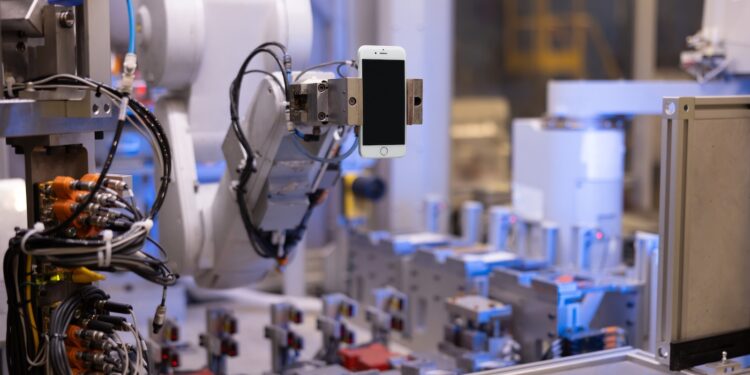In the world of technology, Apple is often in the spotlight, whether for its innovative products or controversial business practices. However, one recent incident has attracted particular attention: nearly 100,000 iPhones that were supposed to be scrapped were stolen and shipped to China. This incident shines a harsh light on Apple's handling of used devices and its environmental policies.
Apple, a company that stands out for its high standards in design and technology, is often a symbol of sustainability and responsibility. But recent reports suggest that the reality behind the scenes may be different. Below you'll find out how Apple deals with old devices and the impact this has on the environment and consumers.
The controversy over the stolen iPhones
A report from Bloomberg revealedthat nearly 100,000 iPhones destined for scrap were illegally shipped to China and sold on the second-hand market. This revelation came after Apple filed a lawsuit against the recycling company GEEP, which was responsible for properly disposing of the devices. However, the charges were later dropped, fueling speculation about the real reasons behind Apple's decision.
Apple's dilemma between reuse and new production
Despite its commitment to environmental standards, Apple appears to be destroying devices that are still fully functional. This practice is in stark contrast to Apple's public commitment to carbon neutrality by 2030. Critics argue that shredding functional devices is not only harmful to the environment but also artificially increases demand for new products.
Technological Innovations and Their Dark Sides
While Apple has introduced Daisy, an advanced recycling robot designed to improve recycling efficiency, critics see it as more of a PR move. Reports of other recycling partners like Re-Teck destroying fully functional AirPods, Macs and Apple Watches are adding to concerns about Apple's true intentions.
Legal and ethical issues
The practice of destroying working devices raises not only legal but also ethical questions. Experts like Kyle Wiens of iFixit argue that such practices should be illegal because they waste valuable resources and place unnecessary strain on the environment.
Apple at the intersection of innovation and environmental protection
The recent controversies surrounding Apple shed new light on the challenges facing major technology companies in the area of sustainability. While Apple continues to offer innovative products, the question remains how it can take its environmental responsibilities seriously without compromising on quality or business ethics. It remains important for consumers to be aware of where and how their devices are disposed of in order to make a responsible decision. (Image: Apple)





